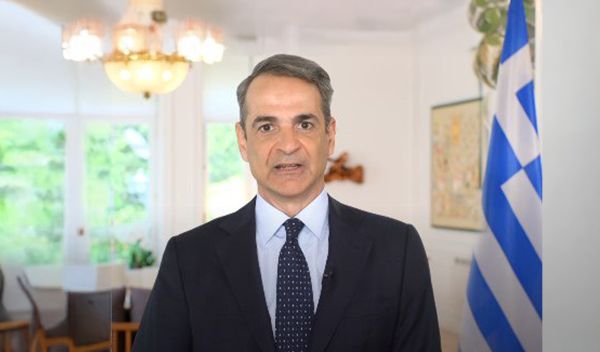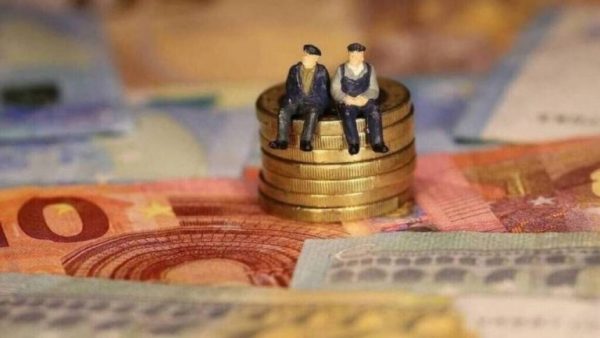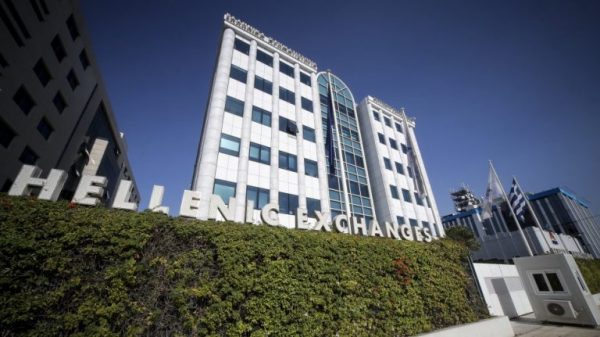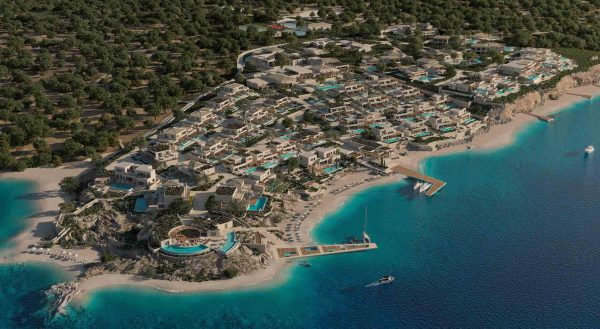
It was, 12 years ago, to the day, when then PM George Papandreou announced from Kastelorizo the recourse of Greece to the support mechanism of the International Monetary Fund, putting the country in the memoranda and unleashing harsh austerity measures.
Contrary to the serene background of the beautiful island behind the prime minister, the announcement of the activation of the support mechanism would put the country in a great adventure of austerity and social unrest, which it had not experienced anything like it since the fall.
After the signing of the first Memorandum, salaries and pensions were reduced, companies were “locked in”, homelessness increased, while many depositors withdrew their money, either to take it abroad, or to cover permanent and ongoing needs.
The cost of living has risen due to a series of taxes on fuel, beverages, soft drinks, cigarettes, catering products. On the contrary, personal income has dropped, at the same time as citizens have been repeatedly called upon to pay extraordinary contributions.
End of an era for the IMF as a lender to Greece
This year, after 12 years – and after three memoranda cycles – the country “finished” with the IMF repaying in advance the remaining loan of 1.86 billion euros from the 1st and 2nd Memorandum.
“It closes a chapter that was opened in May 2010, with the application of Greece to the Fund, for financial support”, Minister of Finance, Mr. Christos Staikouras said a few days ago on the occasion of the disbursement of the amount to the IMF.
The Minister also noted that this is a very positive development, which sends a positive message to the markets about the financial situation of the country, strengthens the public debt profile and brings savings to the state budget, totaling 230 million euros, in favor of Greek society.
It is recalled that, in addition to the early repayment of IMF loans, Greece has pledged to participate a posteriori in the new lending program prepared by the Fund for countries facing fiscal programs. The program started in 2012 but Greece was absent due to the economic crisis. Now, Greece will pay its participation (approximately 1 billion euros) with a loan made by the Bank of Greece.
Latest News

Alter Ego Ventures Invests in Pioneering Gaming Company ‘Couch Heroes’
Alter Ego Ventures' participation in the share capital of Couch Heroes marks yet another investment by the Alter Ego Media Group in innovative companies with a focus on technology.

Corruption Still Plagues Greece’s Driving Tests
While traffic accidents continue to claim lives on Greek roads daily, irregularities and under-the-table dealings in the training and testing of new drivers remain disturbingly widespread

Pope Francis Died of Stroke and Heart Failure Vatican Confirms
As news of the official cause of death spread, tributes poured in from across the globe. The 1.4 billion-member Catholic Church is united in grief, remembering a pope who championed inclusion, justice, and compassion

Increase in Both Museum Visits, Revenues for 2024
As expected, the Acropolis was the top archeological site in the country, followed by Sounion, Mycenae, the ancient theater of Epidaurus, and Vergina in northern Greece

Where Greece’s Tourists Come From: A Look at 2025’s Top Visitor Markets
The United Kingdom continues to hold the top spot as the largest source of incoming tourism, with 5.6 million seats booked for Greece this summer — up 2.2% from last year. This accounts for 20% of all international air traffic to Greece

Pope Francis: A Pontiff Who Reshaped the Papacy and Sparked a Global Conversation
His first words from the balcony of St. Peter’s Basilica—“Brothers and sisters, good evening”—set the tone for a pontificate that would challenge norms, favor mercy over dogma, and bring the papacy closer to the people.

When Blue Skies was Unmasked as ND’s Political ‘Slush Fund’
The fact that so many top New Democracy (ND) party cadres were paid by the firm Blue Skies, owned by Thomas Varvitsiotis and Yiannis Olympios, without ever citing this publicly, raises very serious moral issues, regardless of the legality

Greek Women’s Water Polo Team Top in the World after 13-9 Win Over Hungary
The Greek team had previously defeated another tournament favorite, the Netherlands, to reach the final.

S&P Raises Greek Rating; BBB with Stable Outlook
S&P’s decision raises the Greek economy to the second notch of investment grade ladder, at BBB with a stable outlook.

Greek Tourism Optimistic About Demand from American Market
A recent survey by MMGY Global, conducted from April 3–5 with a sample of 1,000 U.S. adults, found that 83% of Americans still intend to take leisure trips over the next 12 months, a slight drop from 87% in late February











![Πλημμύρες: Σημειώθηκαν σε επίπεδα ρεκόρ στην Ευρώπη το 2024 [γράφημα]](https://www.ot.gr/wp-content/uploads/2025/04/FLOOD_HUNGRY-90x90.jpg)


![Ξενοδοχεία: Μεγάλο το ενδιαφέρον για επενδύσεις στην Ελλάδα – Η θέση της Αθήνας [γραφήματα]](https://www.ot.gr/wp-content/uploads/2025/03/Athens-hotels-90x90.jpg)


![Airbnb: Πτωτικά κινήθηκε η ζήτηση τον Μάρτιο – Τι δείχνουν τα στοιχεία [γράφημα]](https://www.ot.gr/wp-content/uploads/2024/07/airbnb-gba8e58468_1280-1-90x90.jpg)
























 Αριθμός Πιστοποίησης
Αριθμός Πιστοποίησης